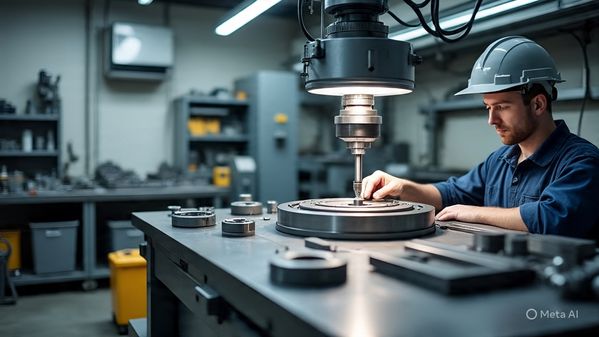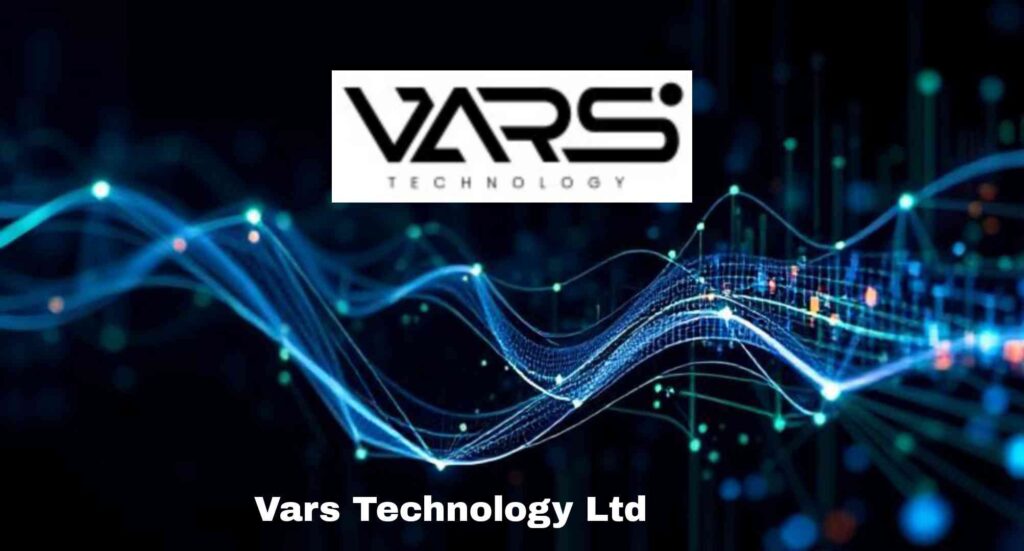Precision in Practice: How Kovar Machining Services Fuel Advanced Engineering
In the realm of high-stakes industries—think aerospace, defense, medical devices, and semiconductors—there exists a persistent demand for materials and parts that not only perform but endure. Few metals can live up to the task, and even fewer machining services can do them justice. Among these rare heroes is Kovar, and the equally specialized discipline of Kovar machining services—a niche, yes, but one that plays a mission-critical role in today’s most complex innovations.
In this guide, we’ll explore why Kovar matters, what makes machining it uniquely difficult (and rewarding), and how expert-level Kovar machining services enable breakthroughs in technologies where failure isn’t an option.
What Is Kovar, and Why Is It So Important?
Kovar, an iron-nickel-cobalt alloy, was developed specifically for its exceptional thermal expansion compatibility with borosilicate glass and ceramics. This unique property enables an airtight, long-lasting seal between metal and glass—essential in vacuum tubes, hermetically sealed electronics, and high-reliability medical components.
A Material Engineered for Extremes
| Property | Value (Approx.) | Why It Matters |
|---|---|---|
| Coefficient of Expansion | ~5 ppm/°C (20–200°C) | Matches glass to prevent stress fractures |
| Composition | 29% Ni, 17% Co, balance Fe | Enables magnetic shielding and strength |
| Melting Point | 1450–1500°C | Allows use in high-heat environments |
| Machinability | Low to moderate | Demands specialized tools and techniques |
Unlike traditional alloys like aluminum or steel, Kovar doesn’t tolerate shortcuts. It behaves differently under stress, requires precise control over speed and feed rates, and reacts to temperature shifts unpredictably. That’s where expert machining comes in.
What Are Kovar Machining Services?
Kovar machining services refer to the full suite of CNC and manual machining processes tailored to this specialty alloy. These services are critical in fabricating custom parts for high-precision environments—especially where electrical conductivity, magnetic permeability, and vacuum sealing are essential.
Core Capabilities Offered by Kovar Machining Shops:
-
Precision CNC Milling & Turning: Tolerances often fall below ±0.0005″.
-
Laser Cutting & EDM (Electrical Discharge Machining): Used to avoid thermal distortion.
-
Annealing & Heat Treating: Controls grain structure post-machining for dimensional stability.
-
Surface Finishing: Lapping, polishing, and chemical passivation for enhanced sealing and conductivity.
“When machining Kovar, it’s not just about cutting metal—it’s about predicting how the material will behave six months from now inside a sealed device operating under vacuum,” explains David R., Lead Engineer at a specialty aerospace components firm.
Why Is Machining Kovar So Challenging?
Ask any seasoned machinist, and they’ll tell you: Kovar isn’t a “cut-and-go” metal. Its unique metallurgical properties demand careful planning and flawless execution.
1. Tool Wear is High
Kovar’s hardness and tendency to work-harden quickly wear down standard tooling. Only premium carbide tools with specialized coatings—like TiAlN—stand a chance.
2. Heat Buildup is a Constant Threat
Because of its thermal properties, Kovar doesn’t dissipate heat like aluminum. This leads to tool chatter, microcracking, and dimension drift if not cooled properly.
3. Dimensional Stability is Tricky
Even small deviations in machining parameters can compromise hermetic sealing. Shops often need multi-step, low-stress machining cycles followed by controlled heat treatments.
4. Finishing is Not Optional
Post-machining processes like deburring, ultrasonic cleaning, and electropolishing aren’t just for aesthetics—they’re mandatory for ensuring Kovar components are vacuum-tight and corrosion-resistant.
Applications That Demand Kovar Machining Services
So who actually needs Kovar machining services—and why can’t they use a more forgiving material?
Aerospace & Defense
From hermetically sealed sensors on satellites to missile guidance systems, the military-grade reliability of Kovar is irreplaceable. Machined Kovar parts ensure uninterrupted performance in environments ranging from deep space to combat zones.
Medical Devices
Kovar’s non-reactive surface and vacuum-sealing ability make it ideal for implantable electronics, surgical lasers, and radiological equipment. Tolerances must often be within a few microns.
Electronics & Semiconductors
Integrated circuits, RF shielding housings, and high-frequency connectors benefit from Kovar’s low expansion rate and electromagnetic interference (EMI) shielding.
Cryogenics & Vacuum Tech
Because Kovar remains stable at extreme cold and pressure, it’s frequently used in supercooled instruments and lab-grade vacuum equipment.
Selecting the Right Kovar Machining Partner: What to Look For
Not every shop that claims to “machine exotic metals” can handle Kovar. In fact, less than 5% of U.S. machine shops offer true, end-to-end Kovar machining services. So how do you choose the right partner?
🔍 Key Criteria:
-
Experience With Kovar (Not Just Nickel Alloys):
-
Ask for sample projects or references specific to Kovar, not Inconel or Monel.
-
-
Precision Equipment & Quality Systems:
-
Look for shops with 5-axis CNC machines, optical comparators, and CMMs (coordinate measuring machines).
-
-
Controlled Environment:
-
Temperature-controlled production areas reduce thermal distortion and maintain tolerances.
-
-
Certification Matters:
-
ISO 9001, AS9100 (aerospace), and ITAR registration indicate serious capability.
-
-
In-House Finishing & Testing:
-
Saves time and ensures full control over vacuum integrity, finish spec, and dimensional checks.
-
Real-World Example:
Helix Materials Group, a precision machining shop in California, worked with a biomedical firm to create a tiny Kovar feedthrough for a next-gen implantable defibrillator. The part required multiple tool changes, three annealing cycles, and vacuum testing at sub-micron pressure levels. The result? A zero-failure component used in over 200,000 devices worldwide since 2023.
Tips for Engineers Working With Kovar Machining Services
If you’re on the engineering or procurement side, here’s how to ensure your project flows smoothly:
-
Share Complete Specs Early:
Include tolerance bands, thermal exposure data, and sealing surface requirements up front. -
Ask About Post-Process QA:
Hermetic leak testing, X-ray analysis, and surface profilometry can prevent surprises downstream. -
Design for Machinability:
Avoid deep pockets, unnecessary undercuts, or extremely thin walls—Kovar doesn’t forgive overengineering.
Cost Considerations: Why Kovar Isn’t Cheap—But Is Worth It
Yes, Kovar machining services come at a premium. Hourly shop rates for true specialists often exceed $150–$200/hr, and material costs can reach $100+/kg. But in high-reliability environments, failure costs more.
Think about it:
-
A failed implant? Liability.
-
A misfiring satellite part? Millions lost.
-
An air-leaking vacuum tube? Game over.
The upfront investment in expert-level Kovar machining is insurance against disaster.
Final Thoughts: The Unseen Backbone of Innovation
While Kovar might not make headlines like lithium batteries or AI chips, it’s quietly powering the systems we rely on—from deep-space sensors to life-saving medical implants. Behind every successful application is a specialized shop offering Kovar machining services with the kind of precision, discipline, and domain expertise that only a few possess.
The next time you see a high-tech marvel that “just works,” consider what’s hidden beneath the surface. Chances are, Kovar—and the skilled machinists who shape it—had something to do with it.
FAQs: Kovar Machining Services, Explained
Q1: What industries typically require Kovar machining services?
A: Aerospace, defense, medical devices, vacuum tech, and semiconductors rely on Kovar for its unmatched thermal and magnetic properties. It’s often used where hermetic sealing and high reliability are non-negotiable.
Q2: How difficult is it to machine Kovar compared to stainless steel or aluminum?
A: Significantly harder. Kovar work-hardens quickly, wears down tools, retains heat, and requires precise machining parameters. It’s not suitable for general-purpose machine shops.
Q3: Can Kovar parts be 3D printed instead of machined?
A: Not effectively. While some advancements in metal additive manufacturing exist, Kovar’s properties (especially its thermal expansion behavior) make traditional CNC machining the gold standard.
Q4: Why is dimensional accuracy so critical in Kovar parts?
A: Many Kovar applications involve glass-to-metal seals or vacuum systems. Even microns of deviation can lead to leaks or mechanical failure, making tight tolerances absolutely essential.
Q5: What is the typical lead time for Kovar machining services?
A: Depending on complexity, lead times range from 3–8 weeks. That includes material sourcing, multi-step machining, heat treatments, and rigorous quality assurance testing.
Q6: Can I supply my own Kovar material to a machining shop?
A: In some cases, yes—but it’s often better to let the shop source it. Reputable suppliers ensure the alloy meets exact specs and certifications required for precision sealing and stability.
Ready to elevate your project with ultra-precise Kovar components?
Partner with machining experts who speak the language of specialty metals—and deliver performance where it matters most.



